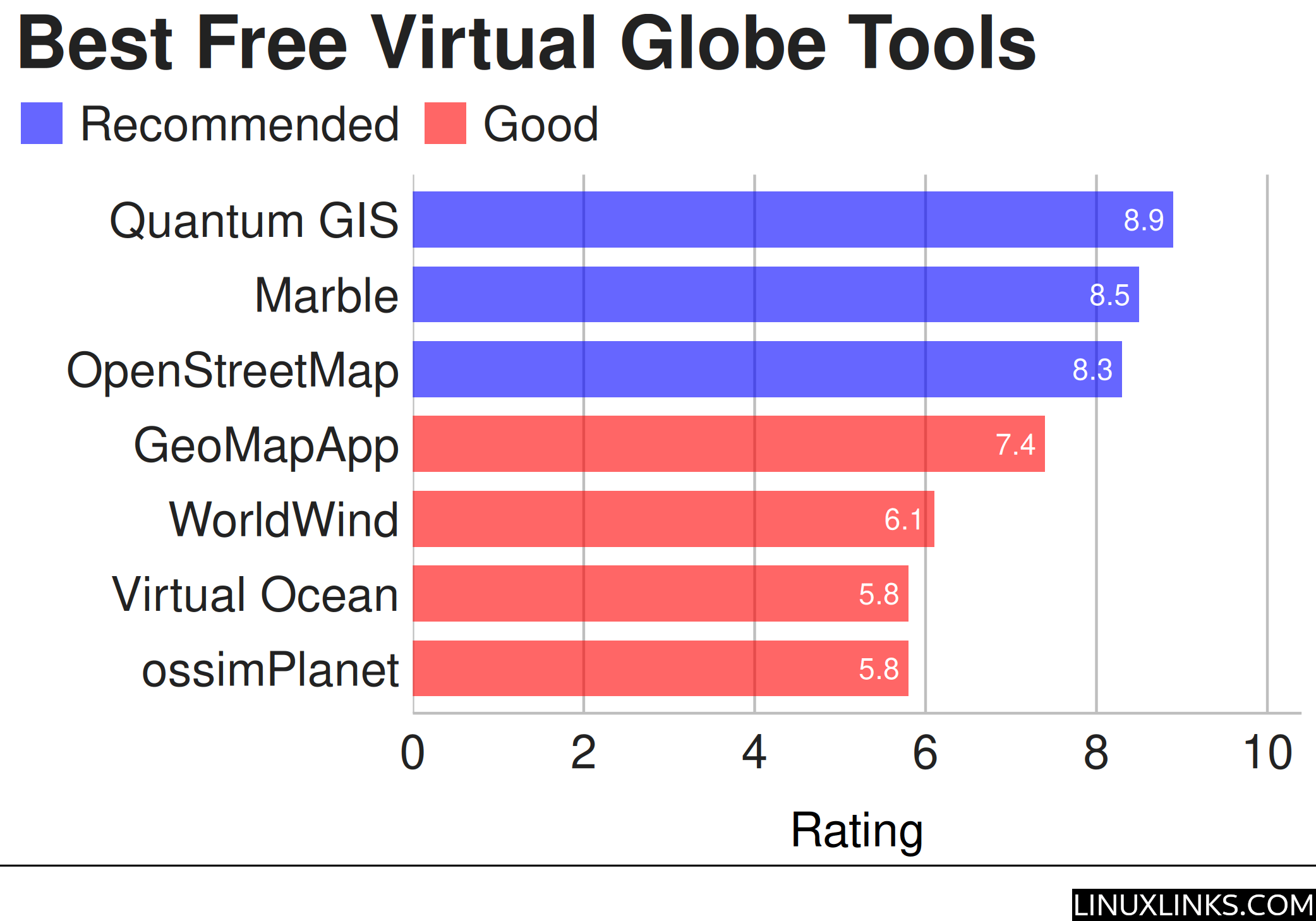A virtual globe is a three-dimensional (3D) software model or representation of Earth or another world. A virtual globe provides the user with the ability to freely move around in the virtual environment by changing the viewing angle and position. Virtual globes may be used for study or navigation (by connecting to a GPS device) and their design varies considerably according to their purpose.
Google Earth is a very popular virtual globe app. While it’s available for Linux the software is freeware, and therefore not open source. In this article we recommend the best free and open source virtual globe software. We also include related software in this roundup.
While none of the software applications featured in this article have all of the features offered by Google Earth (although some offer some different features), and they are not exactly comparable, they are all worthy of investigating.

Let’s explore the 7 applications here. For each application we have compiled its own portal page, providing a screenshot of the software in action, a full description with an in-depth analysis of its features, together with links to relevant resources.
| Virtual Globes | |
|---|---|
| Quantum GIS | User friendly Geographic Information System |
| Marble | Combination atlas/virtual globe |
| OpenStreetMap | A copyright free alternative to Google Maps |
| GeoMapApp | Earth science exploration, global topography database, and visualization |
| World Wind | Virtual globe initially developed by NASA's Learning Technologies project |
| Virtual Ocean | GeoMapApp tool suite with the NASA World Wind 3-D earth browser |
| ossimPlanet | Accurate 3D global geo-spatial viewer |
 Read our complete collection of recommended free and open source software. Our curated compilation covers all categories of software. Read our complete collection of recommended free and open source software. Our curated compilation covers all categories of software. Spotted a useful open source Linux program not covered on our site? Please let us know by completing this form. The software collection forms part of our series of informative articles for Linux enthusiasts. There are hundreds of in-depth reviews, open source alternatives to proprietary software from large corporations like Google, Microsoft, Apple, Adobe, IBM, Cisco, Oracle, and Autodesk. There are also fun things to try, hardware, free programming books and tutorials, and much more. |
